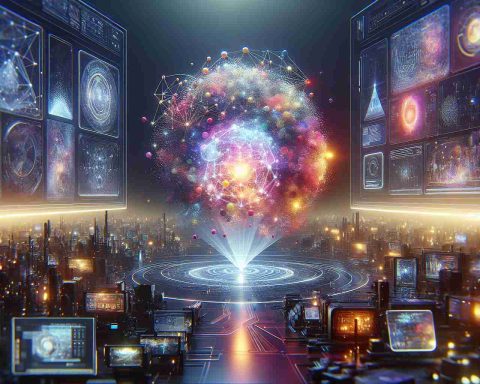Decisions concerning nuclear weaponry must be made by humans, not artificial intelligence. This important assertion was highlighted during a significant summit in Seoul that focused on the role of AI in military applications.
This year’s gathering convened an impressive 2,000 officials and private sector experts from 90 countries, all aiming to establish regulations regarding the use of artificial intelligence in armed forces. As technology rapidly advances and global conflict risks increase, the topic has become increasingly pertinent.
Participants discussed the dual nature of AI, acknowledging it as both a potential asset for security and a possible threat. The complexity of creating a robust ethical and regulatory framework for AI in military contexts was underscored during the sessions. However, a key takeaway from the discussions was the emphasis on human responsibility in these critical decisions, as technology alone should not dictate future outcomes.
A prominent figure from the South Korean government articulated the view that our choices will shape the destiny of humanity, reinforcing the notion that we, not machines, bear the responsibility for our actions. The summit reflects a growing awareness that vigilance and thoughtful governance are vital as technological innovations continue to evolve within military settings.
Human Oversight Essential in Nuclear Decisions: A Vital Need for Accountability
As nations grapple with the implications of advanced technologies in military applications, the argument for human oversight in nuclear weapon decisions becomes increasingly urgent. This necessity has transcended mere ethical discussions and entered the realm of global security and diplomatic strategy.
What Are the Key Questions Surrounding Human Oversight in Nuclear Decisions?
1. Why is human oversight crucial in nuclear weapon decisions?
Human judgment is essential in interpreting complex situations, assessing potential consequences, and weighing moral obligations. Automated systems may lack the contextual understanding that human leaders possess, leading to catastrophic miscalculations.
2. How have past incidents shaped the current discourse?
Historical events like the Cuban Missile Crisis and the false alarm during the 2018 Hawaii missile crisis highlight the dangers of automated decisions. These events have underscored the need for verified human input in nuclear decision-making processes.
3. What role does conscience play in warfare?
Acknowledging that nuclear weapons carry profound moral implications, human oversight ensures that decisions can be weighed not only against military objectives but also against humanitarian considerations.
Key Challenges and Controversies
One of the principal challenges is the balance between speed and accuracy. In critical situations, automated systems may enable rapid responses, which can be an advantage. However, with speed comes the risk of human error or misinterpretation when there is a lack of contextual information, which is particularly pertinent in nuclear scenarios.
Furthermore, there is concern about the potential for cyber threats and hacking, which can compromise automated defense systems. The reliance on technology raises questions about the security of nuclear arsenals and whether advanced AI might inadvertently trigger an escalation due to malfunctions or external manipulation.
Advantages and Disadvantages of Human Oversight
Advantages:
– Contextual Decision-Making: Humans can evaluate the nuance of a crisis, considering environmental and social factors that AI may overlook.
– Ethical Judgment: Human leaders are capable of moral reflections, which are crucial in making decisions involving lethal force.
– Accountability: Human oversight ensures that there is accountability in decision-making processes, which is vital for the ethical governance of military operations.
Disadvantages:
– Slower Response Times: Human involvement can delay action in time-sensitive situations, potentially allowing threats to escalate.
– Emotional Decision-Making: Human emotions can influence decisions, leading to irrational choices that may escalate conflicts rather than resolving them.
– Subject to Bias: Human judgment can be clouded by biases, leading to potentially flawed assessments regarding threats and responses.
Conclusion
The interplay between technology and human oversight in nuclear weapon decisions is critical—ensuring that while technological advancements are harnessed, they do not supplant the essential human judgment needed to navigate the complexities of global security. The recognition that humans must remain at the helm of these decisions is a significant step towards fostering international safety and ethical governance.
For more information regarding nuclear governance and military applications, visit United Nations or International Committee of the Red Cross.

















